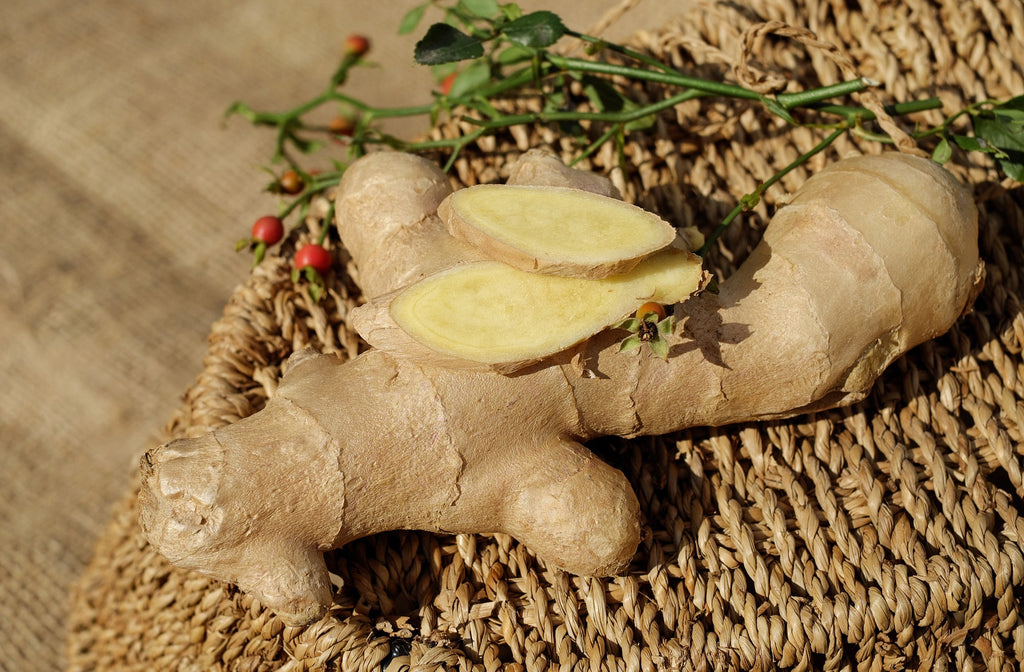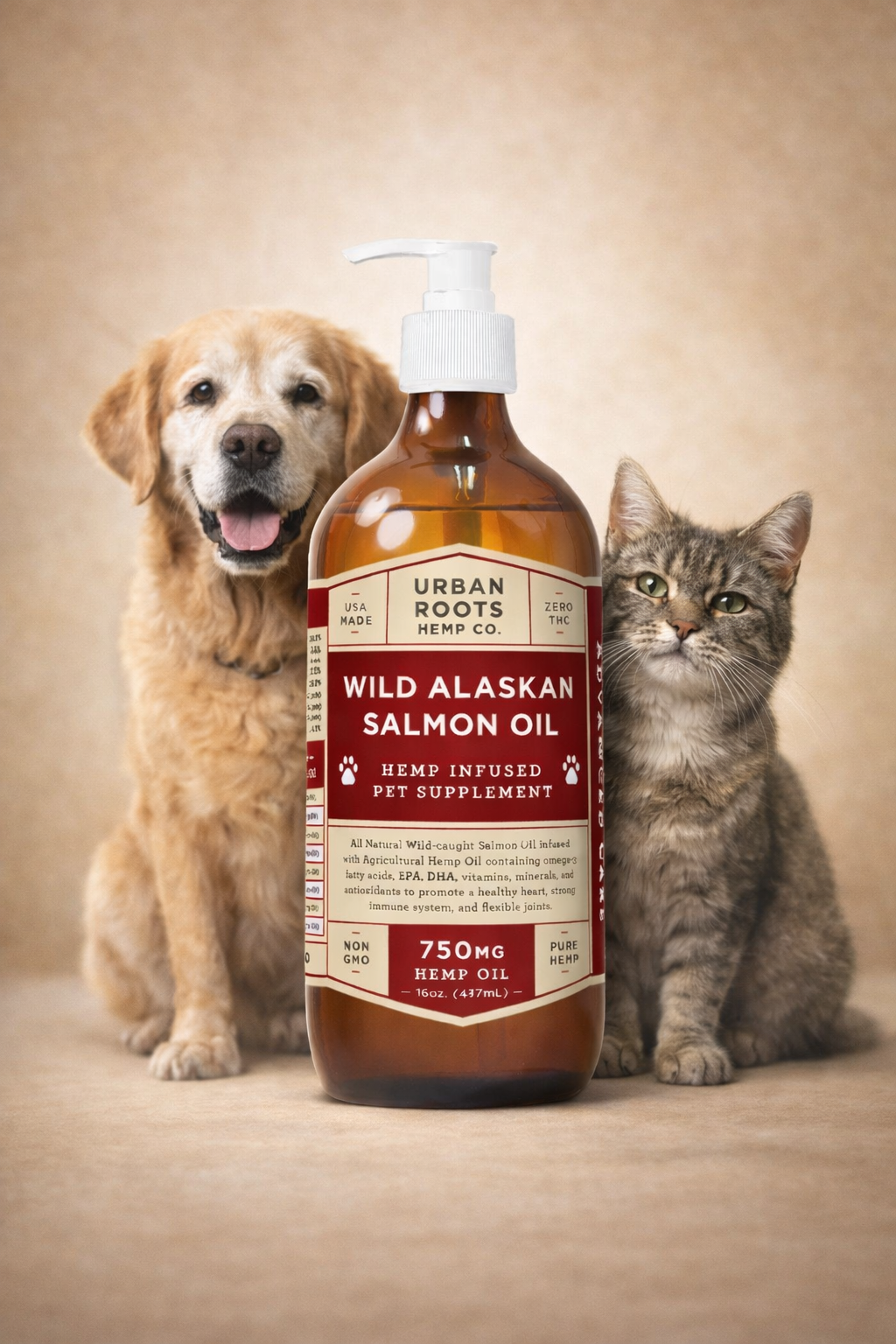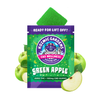CBD and Ginger Essential Oil


We talk a lot about CBD in our articles. This makes sense because the majority of what makes up our products is CBD in some form or another. It’s also what produces the bulk of the positive effects that our customers are looking for when they purchase from us.
However, a lot of our products have more to them than just CBD alone. Many of them contain other natural ingredients and oils that have beneficial health effects in and of themselves. When combined with CBD, substances like ginger, MCT oil, or melatonin can add a new dimension to the supplement. They can work with the cannabinoid to produce a desired effect (like CBD and melatonin as a sleep aid, for example).
In order to keep you informed about the possible health benefits of other substances that are included in some of our products, as well as how they work together with CBD, we thought we’d put out some articles discussing them. For this article, we will be discussing the health benefits of ginger, and how those benefits make it a prime candidate for combining with CBD.
What Is Ginger?
For some of us, ginger is that funny, Dr. Seuss-looking root thing we find in the produce section when we are feeling a bit adventurous. For probably most of us though, ginger is something we just buy in powder form in the spice aisle at the grocery store. And that’s about the extent that we consider it. A simple spice that we add when cooking Asian cuisine or when we are making cookies during Christmas time. But ginger and its culinary and medicinal use stretches far back into history.
What we buy at the store is actually the root of the ginger plant. It grows predominantly in China, India, Africa, the Caribbean, and other warm climates. It’s thought to have been first cultivated about 5,000 years ago and has since become well known as a spice and flavoring. Furthermore, it has been a traditional remedy in many cultures for thousands of years.
In addition to being an ingredient in a host of savory Asian and Indian dishes, ginger is also used to make tea, can be dried or crystalized in sweets and confectionaries, and can be consumed orally and topically in oil form. Essentially, ginger is eaten, drank, and consumed in almost every way imaginable either to enjoy its potent flavor, or take advantage of its widely purported positive health effects.
Benefits of Ginger Essential Oil
For our purposes here at Urban Roots Hemp Co, ginger essential oil is its most important form. This is because ginger oil, along with other essential oils, help us to modify and increase the benefits that our CBD products may produce for you.
In the case of ginger, its essential oil produces a range of potential health benefits including:
- Digestion – Across history and cultures, ginger and digestion go hand in hand. This root has long been used as a supplement you consume after eating or when the food you ate isn’t sitting well. And although ginger helping with digestion is still considered by some to be an “old wives’ tale”, there is actually a good deal of science to back it up. The phenolic compounds in ginger have been shown to help relieve gastrointestinal (GI) irritation, stimulate saliva and bile production, and suppress gastric contractions as food and fluids move through the GI tract. Additionally, ginger appears to have a positive effect on certain enzymes found throughout the digestive system, which may help prevent constipation and even possibly reduce the risk of colon cancer.
- Nausea – Another area where ginger has been used both historically and today, is in treating the feeling of nausea. In fact, for many years, ginger was used to treat nausea and vomiting associated with seasickness. Chewing raw ginger or drinking ginger tea is a relatively common home remedy for nausea during both cancer treatment and pregnancy. The relationship between ginger and morning sickness relief was the subject of a study that looked at 1,278 pregnant women and found that relatively small amounts of ginger successfully reduced their symptoms of nausea. There is also evidence that ginger may actually be more effective at treating sea sickness than prescription medication.
- Muscle Soreness – In addition to problems associated with indigestion and nausea, ginger and muscle soreness are two things that often also go hand in hand for many people. A study undertaken at the University of Georgia found that daily consumption of ginger root reduced exercise-induced muscle pain by about 25 percent. In additional to muscle soreness, ginger has been found to relieve pain brought on by other conditions such as inflammation and menstrual cramps.
- Cold and Flu – Here’s one that you may be familiar with. Ginger (especially ginger tea) is often used for its soothing properties when people have a cold or the flu. But there may be even more going on than you think when you’re sick and drink some ginger tea. As a diaphoretic, ginger causes the body to sweat more, which can help progress a fever, while its antimicrobial effects may help fight off the actual virus itself.
Ginger Essential Oil and CBD
The evidence shows that the main benefits of ginger are found in the areas of digestion (or lack thereof), including nausea. For that reason, at Urban Roots Hemp Co, we’ve created a CBD digestive formula capsule that includes both ginger essential oil and MCT oil along with the CBD.
The beneficial digestive properties of the ginger combine with the regenerative and healing powers of the endocannabinoid system (triggered by the CBD) to create digestive balance without any laxative effects. Our CBDigest may help a range of digestion issues including cramps, bloating, IBS, Crohn’s Disease, indigestion, and several other uncomfortable experiences.
People have been taking advantage of the powerful, beneficial health effects of both ginger and CBD for thousands of years. What we have done is combine the two so you can enjoy the benefits of these two substances in one product.










